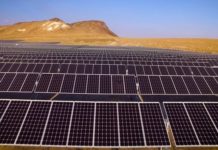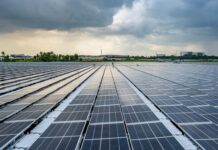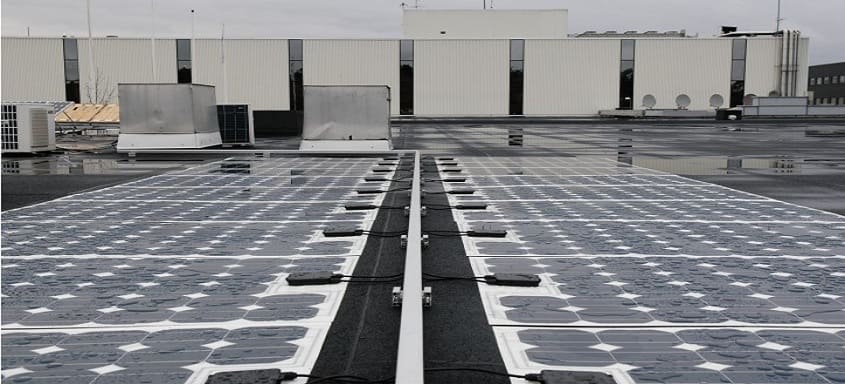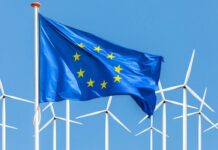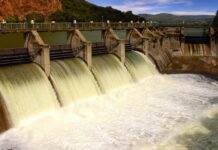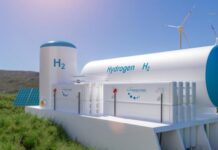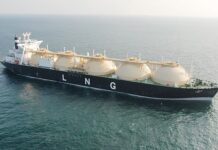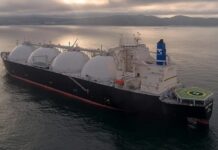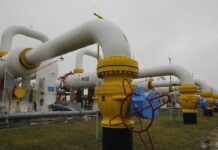Our work in Papua New Guinea (PNG) demonstrates our holistic approach to managing key sustainability issues across our operations.
PNG is a unique, diverse country that has a highly complex and challenging operating environment. More than 800 language dialects are spoken by its 7 million inhabitants, and 97 percent of the land is under customary land tenure. An estimated 7 to 10 percent of the world’s biodiversity is present in the country, as well as the world’s third-largest moist tropical forest. Through our careful approach to environmental management, community engagement and local economic development, we have successfully worked with PNG’s communities and local organizations. These efforts helped us to begin liquefied natural gas (LNG) production in April 2014, several months ahead of schedule.
Our current operations in PNG include gas production wells and a processing plant in the Highlands; LNG production and shipping facilities on the south coast; and more than 500 miles of pipeline in between. Over the life of the PNG LNG Project, we expect to produce and sell more than 9 trillion cubic feet of gas.
Independent third parties regularly evaluate ExxonMobil PNG (EMPNG) to ensure conformance with external financing requirements related to environmental and social protection and performance. To see examples of these reports, visit pnglng.com. For an academic review of the construction phase of the Project, including details on grievance management mechanisms and other engagement efforts, please see the Harvard Kennedy School report Building the foundations for a long-term development partnership.
- Engagement with local communities
- Grievance management mechanism
- Resettlement
- Engagement with the PNG government
- Community and workforce safety
- Local workforce and supplier development
- Biodiversity and environmental management
- Engagement with local communities
Before we began construction, we worked to establish meaningful relationships to benefit both the communities and the company. Support from local communities was a key factor that enabled us to complete the PNG LNG Project construction phase early. Community engagement in PNG is challenging, given that many communities are located across diverse geographic and often mountainous terrain, and engagements need to accommodate many dialects. By the start of production, we hosted approximately 8,700 community meetings, with more than 190,000 in attendance. The meetings used multiple methods of communication, including roadshows, school meetings, community forums and drama performances. For example, using locally created theater, a culturally appropriate medium, we reached more than 3,000 people in 25 communities with our message about the importance of safety along the onshore pipeline.
PNG community members
Photo — Community members in PNG attending an ExxonMobil-sponsored drama performance; we use drama troupes to engage on issues of importance to both our business and local communities.
Since 2007, ExxonMobil has invested $268 million in community and infrastructure programs in PNG, including women’s economic empowerment, education and health initiatives. One example is our contribution to support a Texas Children’s Hospital initiative to improve PNG’s health infrastructure, specifically in the areas of child and maternal health. For more information about specific donations and programs, see our quarterly environmental and social reports at pnglng.com.
In order to enhance our engagement with communities, and in keeping with the International Finance Corporation’s (IFC) Performance Standards on Environmental and Social Sustainability, we established a grievance management mechanism to address individual and community concerns about the project. Dedicated project personnel were responsible for developing and managing a comprehensive process to map, track, analyze and respond to community grievances. Since the start of construction, we have received nearly 1,700 grievances, of which only three are not yet closed. Grievances have related mainly to compensation for land use, questions arising from the resettlement of some residents, access to land, impacts on food resources, and perceived threats to the environment and cultural sites.
Our global objective is to avoid or minimize resettlement. When resettlement is unavoidable, we incorporate our internal sustainability principles, which are in line with the IFC’s Performance Standards, into the resettlement process so that livelihoods and standards of living are, at a minimum, restored. Throughout the resettlement process, EMPNG provided support to resettled households and implemented ongoing standard of living and livelihood restoration monitoring. Local organizations provided another layer of independent monitoring and advocacy. For example, a local third party, formerly called the Environmental Law Center, acted as an advocate on behalf of resettled people and helped keep them informed about the resettlement process, as well as their rights and obligations.
As part of our company’s commitment to ethics and integrity, we support the PNG government’s candidacy in the Extractive Industries Transparency Initiative (EITI). This voluntary initiative aims to improve governance in resource-rich countries through the disclosure and verification of company payments and government revenues from oil, gas and mining projects. More information is available on ExxonMobil and EITI.We have also engaged with the PNG government about security and human rights in relation to EMPNG’s operations. Our company has a Memorandum of Understanding with the Royal PNG Constabulary, in which it agreed its actions would meet the requirements of the Voluntary Principles on Security and Human Rights. Further, the Constabulary agreed that government security forces deployed in project areas will have received training on the Voluntary Principles.
The safety of our workers and the communities in the areas where we operate is paramount. During construction, we implemented several community and worker safety initiatives. For example, more than 14,000 workers participated in the LNG plant’s Incident and Injury Free training program, and we trained more than 2,000 Safety Champions. The Safety Champion program identifies opinion leaders and natural role models and encourages them to instill a safety culture within their work teams.
During startup and early production, contractor safety leadership workshops were conducted with nearly 200 people from more than 20 different companies. The workshops focused on transferring lessons learned during construction to the production phase and solidifying the expectation of Nobody Gets Hurt. At the end of 2014, our ongoing commitment to safety enabled us to reach 23 million work hours without a lost-time incident across all EMPNG Upstream operations for the year.
Wherever we operate, we strive to maximize employment opportunities for local workers. During peak construction at the end of 2012, the project employed approximately 21,220 workers, 40 percent of whom were Papua New Guineans. In production, EMPNG employs 2,178 workers, more than 70 percent of whom are Papua New Guineans. To help develop the technical and professional skills of our workforce, we established a variety of training programs during construction. Many of these have continued in production.
PNG women entrepreneurs
Photo — We invest in women entrepreneurs through the Livelihoods Restoration Program.
EMPNG also remains committed to the development of local suppliers. Since the start of construction, we have used local companies for the supply of goods and services such as camp equipment, labor hire, transport and materials. Our business development team played an important role in transferring knowledge and skills to increase the capability of PNG suppliers to meet ExxonMobil’s global standards.
Maintaining forests and conserving ecosystems are priorities of EMPNG’s biodiversity strategy. We have implemented management and monitoring measures aimed at minimizing or mitigating the effects of our activities on biodiversity. There are challenges with managing the biodiversity-related expectations of a wide spectrum of stakeholders, and active consultation has been and remains critical to the development and delivery of our biodiversity program. Through a consistent and ongoing consultation process, we have developed partnerships and built a trustworthy reputation with many communities, conservation organizations, government departments and other stakeholders.
One example of a species we have been helping to protect, in partnership with our stakeholders, is the pig-nosed turtle, known locally as the Piku. The meat and eggs of the turtle have long been a source of food for local people, but increased harvesting has led to a decline in the population of this species. Working with local communities and marine conservation experts, we have contributed nearly $1 million for ongoing research and conservation of this turtle, with a shared determination to return the Piku population to a sustainable level. This program, led by the University of Canberra and the University of Papua New Guinea, has already had an impact on community attitudes, with a community-led protected area now established for turtle nesting.



